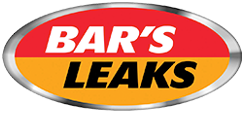Many of us hop in our cars in the morning, start them up and drive off without giving much thought to our motor oil. However, oil plays a critical function in lubricating your engine to avoid mechanical damage and wear. There are four things every driver should know about their motor oil, which will help you appreciate just how important it is to check it regularly and perform regular oil changes. You don’t need to have a lubrication engineer’s knowledge, but some basic groundwork information goes a long way.
Why You Need to Be Concerned With Your Motor Oil
Keep these four motor oil points in mind:
- Not all oils are created equal: There is a big difference in the quality of different engine oils. It really is a case of “you get what you pay for.” Any money you save buying cheap motor oil is thrown out the window the moment you have abnormal engine wear or suffer any sort of lubrication-related failure. Ditto for hard driving or harsh conditions – you don’t want to take chances with subpar oil.
- Synthetic versus conventional oils: Synthetic motor oils are engineered to give the best flow, lubrication and wear properties across a wide range of temperatures and typically deliver better performance and fuel economy than standard conventional oils. Some engines are designed to only run on synthetic oils or synthetic blends, so consult your owners’ manual. With some modern cars, failure to use the proper grade of oil as recommended by the manufacturer could lead to warranty problems. Be careful with this and know what was installed in your car from the factory.
- The importance of viscosity: The viscosity, or thickness, of your oil is indicated for regular and winter driving. For example, you might see “10W-40” on the bottle – the W means “winter” and is not that important when talking about today’s multigrade oils. The numbers in the moniker is the weight designation – 10W-40 is thicker than 10W-30, and 30 is thicker than 20, and so on. Thicker oil can help seal and lubricate worn engine components, while thinner oil flows better, especially in colder temperatures.
- Skimping on oil changes doesn’t pay: Trying to extend the intervals of your oil changes is never a good idea. Manufacturers base oil change mileage and time guidelines based on testing and experience, and pushing your oil changes out beyond their recommendations can cause increased wear and reduced fuel economy as the oil breaks down. it’s not worth the risk.
In addition to maintaining your engine oil, keep an eye on oil leaks as they appear. At the first sign, a bottle of our Bar’s Leaks engine stop leak product can keep you on the road at a very low cost and without having to get sidelined at a shop or dealership. Use our online store locator to find a distributor near you or fill out our contact form to obtain more information on our range of Bar’s Leaks products. We’re always happy to help.

